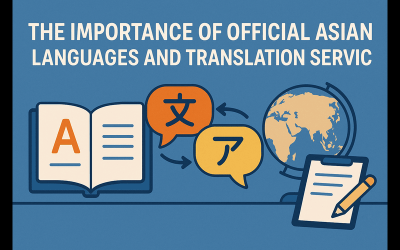When was the last time you had to seek or provide official consent to perform an act? Maybe you signed one of those school field trip consent documents for your kid or gave consent to allow someone else to act in your place in an affair of commerce. These sorts of situations usually involve a letter of consent—a humble but essential form that makes clear rights, responsibilities, and understandings between individuals or entities.
Without a Consent Letter;
There are going to be misconceptions. Businesses find themselves mired in legal trouble, parents find themselves saddled with restrictions while traveling with minors, and there are going to be delays in medical treatment due to lack of authority. A well-written consent letter clarifies, avoids conflict, and ensures everybody understands you.
Beyond that, language barriers could interfere with consent agreements in an interconnected world. That’s when you need translation. Whether you are completing an international business transaction or granting consent for an out-of-country traveling family member, accurately translated consent documents assure conformity to local law as well as preventing potential misinterpretation.
Understanding when and how one must employ a letter of consent makes an enormous difference in personal, work, as well as legal issues. In this section, let us explain how this letter plays an essential role across many areas of one’s life and how it plays an invaluable role toward maintaining unobstructed communications.
What Is a Letter of Consent?
A letter of consent refers to an explicit letter whereby an individual grants consent for any course of action or decision. A letter of consent serves as an official consent letter between two parties, indicating both parties’ mutual clear understanding and consent. Letters of consent are typically found in educational, healthcare, business, and tourism sectors.
Some common examples are:
- A parent consent form for release of the child from school grounds.
- A patient agreeing to treatment by a surgeon.
- A businessperson assigning an employee to perform an act on their behalf.
- A guardian giving consent for an unaccompanied minor traveling.
The letter makes consent lawful, giving proof of an agreement. Institutions prefer it so that there are no conflicts, and it proves that consent has actually been issued.
Certified Translation Services
Get your documents translated and certified by a professional translator in 120+ languages with 24 hour delivery.
Get a QuoteKey Components of an Effective Consent Letter
A well-crafted letter of consent shall have:
- A clear title – A generic heading like “Letter of Consent” conveys the intent.
- The date – It permits setting the timeline.
- The names of both parties – Specifically defining the grantor (who grants it) and the recipient (who receives it).
- The purpose of consent – Defining the action being approved.
- Time validity – If applicable, showing how long the consent lasts.
- A signature – The signature by the grantor confirms the agreement.
A missing or incomplete section could lead to confusion, delay, or even result in legal issues. It is, thus, necessary to be detailed and accurate.
Where Are Letters of Consent Located?
1. Education
- Parental consent: Parents are routinely requested by schools for school activities, treatment, or field trips. Parents are informed and consent to permit children.
- Data usage: Parental consent could be required if schools want to publish images or data of students, so it meets data protection law.
2. Healthcare
- Medical procedures: Written consent must be given by the patient beforehand so that the risks as well as benefits are known.
- Medical research: Participants must give consent first before being included in studies.
3. Business and Legal Issues
- Authorization to act refers to the power granted by employers to employees so that the latter may sign contracts, withdraw bank money, or resolve confidential matters.
- Property usage: Landowners provide consent letters so that other individuals may use land for events or business.
4. Traveling
- Minors traveling alone: If children are traveling independently, there are typically airline and border authority requirements for a consent letter. It has the effect of deterring custody disputes and validating the visit has been approved.
- Company-sponsored trips: Employees are requested by employers to sign consent documents beforehand when traveling internationally for work.
The Role of Translation Services in Letters of Consent
In international matters, it only functions if everyone knows it. A letter of consent has to contain an accurate translation so it fulfills foreign law requirements and does not cause confusion.
For example, if an American organization is granting consent to an affiliate in Japan, an improperly translated consent letter could lead to costly misconceptions. The same applies to consent documents, legal agreements, and traveling permits.
Professional translation keeps the original intent of consent letters intact while complying with the legal and linguistic requirements of other nations. It plays an especially essential role in cross-country transactions, immigration, and transnational ventures.
Document Translation Services
Looking for a Quick and Convenient Way to Get Professional Document Translation Service? Click the Button Below for Our Online Translation Service!
Get a QuoteWhy Letters of Consent Are Important
A well-written consent letter protects everybody. It states clear terms, evades conflict, and provides legal backing if there ever arises an argument. In case there is no authority, there are legal hindrances for companies, there are treatment delays in hospitals, and there are canceled plans while traveling.
A simple slip, say, an omission of an essential clause, can invalidate the letter. Clearness, accuracy, and (if necessary) translation, therefore, are necessary.
How to Write an Effective Letter of Consent
To ensure that your letter is successful:
- Be direct. Be concise. Avoid vague language. Avoid unimportant details.
- Include all essential details – Mention dates, names, and specific permissions.
- Use formal language – Be respectful, objective, and clear. Avoid slang, abbreviations, and overly technical language.
- Proofread carefully – One error can lead to confusion.
- Consider translation if need be – If the letter must be sent overseas, accuracy comes via professional translating.
Final Thoughts
A letter of consent is not just an empty formality—it is an invaluable tool that keeps things orderly, secure, and legally clear across many areas. Whether you are granting consent for a business deal, medical treatment, or holiday accommodation, an accurately worded and, if necessary, translated letter ensures smooth functioning and tranquillity.
If you ever need to seek or give formal consent, you shouldn’t underestimate the power of an elegantly worded consent letter. It saves time, protects rights, and stays away from unwarranted complexities. In any case, if it’s recorded, there’s no scope for doubt.
 Rana Maalouf
Rana Maalouf

